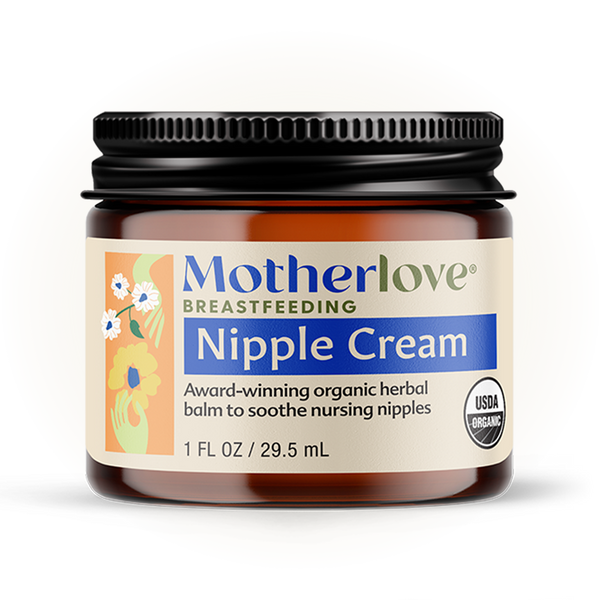By Wendy, IBCLC.
If you are a breastfeeding mom, you’ve likely heard a lot of buzz surrounding tongue ties and breastfeeding — and it can get very confusing!
Some seem to say that tongue ties are the cause of every breastfeeding challenge; others complain that claims about tongue tie and breastfeeding are completely overblown. And you’ll find every perspective in between.
If you are a breastfeeding mom encountering challenges, you may feel overwhelmed by all you are hearing and it can feel difficult to know what to believe. If you suspect you have a tongue tied baby, you may feel unsure of what action to take, if any.
TONGUE TIE DURING BREASTFEEDING
Whatever you may have heard about tongue ties, there is no disagreement about the vital role your baby’s tongue plays while breastfeeding. Unlike bottle feeding, breastfeeding requires your baby to play an active role in removing milk from your breasts, and your baby’s tongue is one of the most important players.
To make breastfeeding successful, your baby needs to be able to extend their tongue past their lower gum line, they must use their tongue to create a seal around your breast, and then they must be able to have enough tongue mobility to effectively remove milk from your breast.
Tongue ties result when the tissue beneath the tongue (called a frenulum) is too tight or restrictive to make these movements possible. It’s important to understand that we all have a frenulum under our tongues, so just because you see your baby’s frenulum, it doesn’t mean they are tongue tied.
However, some of us are born with frenulums that are thicker, tighter, and less mobile than others. When this happens, it can affect several aspects of breastfeeding, and cause it to be very challenging.
SYMPTOMS OF TONGUE TIE
Every mom and baby experiences the symptoms of tongue tie differently, and you may experience some of these symptoms without tongue tie being the main cause (this is why it can all be so confusing!).
Still, here are some common symptoms that may be caused by tongue tie. You may experience one or several of these if your baby has a tongue tie that is affecting breastfeeding.
- Baby has difficulty latching, or doesn’t latch at all
- Baby can’t get a deep latch, despite mom practicing deep latching techniques
- Baby continually slips off breast
- Baby is causing nipple pain; often it feels like baby is gumming the breast rather than using their tongue to cup it
- Baby gets tired easily while nursing
- Baby can’t fully empty the breast
- Baby can’t handle the fast flow of milk, and chokes and sputters during nursing, or experiences excess gas or an upset tummy
- Mom is experiencing low milk supply, even after other causes have been ruled out
HOW TO KNOW IF BABY IS TONGUE TIED
The single best way to find out if your baby is tongue tied is to visit a lactation consultant who is experienced in tongue tie for an evaluation. You can also consult with a breastfeeding medicine doctor who specializes in tongue tie, or another medical professional, such as a dentist, or an ENT who has tongue tie expertise. If you can’t connect with one of these experts in person, you may be able to connect online or via video appointment.
Unfortunately, many pediatricians have not been trained in the relationship between tongue tie and breastfeeding so you may not have success if you ask them. It’s important that whoever evaluates your baby’s tongue tie not only looks at your baby’s tongue, but observes how your baby uses their tongue while breastfeeding, asks you about your breastfeeding experience, and discusses yours and your baby’s full health profile.
If you are not able to get your baby evaluated by a tongue tie expert, you can check out this video about identifying tongue tie in your baby, by Dr. Bobby Ghaheri, an ENT and tongue tie expert, or this website (with photos!), by Catherine Watson-Genna, an IBCLC and tongue tie expert.
TO CLIP OR NOT TO CLIP?
OK, so here’s where it gets confusing…yet again!
The decision about whether or not to have your baby’s frenulum clipped is a very personal one, and one that only you can make for yourself. The good news is that in most cases, the procedure to get a baby’s tongue tie revised is usually very short and relatively painless for your baby. Many parents compare it to when a baby gets a shot, and most say it’s easier than a circumcision.
Still, for a parent, it can be difficult to know whether doing the procedure is right for you.
It may be useful to be aware that some babies who have all the signs of tongue tie end up breastfeeding just fine. They might need some extra help with latching, but sometimes all it takes for them to successfully breastfeed is a position change; or you may need to pay extra attention to deep latching for a while until you both get the hang of it.
For other babies, you may have exhausted all possibilities—optimized latching, increased nursing frequency to make sure your supply is intact—and still be encountering difficulties. In these cases, it may be good to consider getting your baby’s frenulum clipped.
Keep in mind, too, that sometimes a baby who has a tongue tie will be able to compensate in the early months—when milk supply is often naturally robust and many moms are dealing with oversupply—but may encounter troubles later, when milk supply levels out. You may want to correct your baby’s tongue tie early on to ward off this potential problem but you can always go back and reconsider tongue tie surgery later on. Consult with your lactation consultant or tongue tie doctor for guidance with these questions.
Sometimes a tongue tie procedure doesn’t fully solve your breastfeeding issue. The reason why is that breastfeeding challenges usually have more than one cause, and tongue tie clipping alone isn’t always the “magic ticket” for a mom. It’s also important that you follow any aftercare procedures after a tongue tie correction so that your baby heals properly and the tongue tie doesn’t reattach.
Again, all of this is why it’s best to work with a lactation consultant so that you can tackle the problem in a holistic manner.
THE BOTTOM LINE
As you can see, tongue tie and breastfeeding isn’t really a black-and-white issue. Every single mom and baby are different and the way one baby’s particular tongue tie affects breastfeeding varies widely. Some babies may benefit from a tongue tie clip while others may not.
All moms and babies are different and unique. It’s important to remember this as you absorb information about tongue tie—especially information you see online and in social media, where you may encounter extreme points of view, or points of view that don’t apply to your specific situation.
So gather all the information you can about tongue tie and make sure you are getting information from reputable sources. If you think your baby may be tongue tied, most definitely get an expert to evaluate your baby. But remember, ultimately, that you can go with your instincts when it comes to tongue tie and whether or not to clip. After all, you are the parent and you know your baby best.





